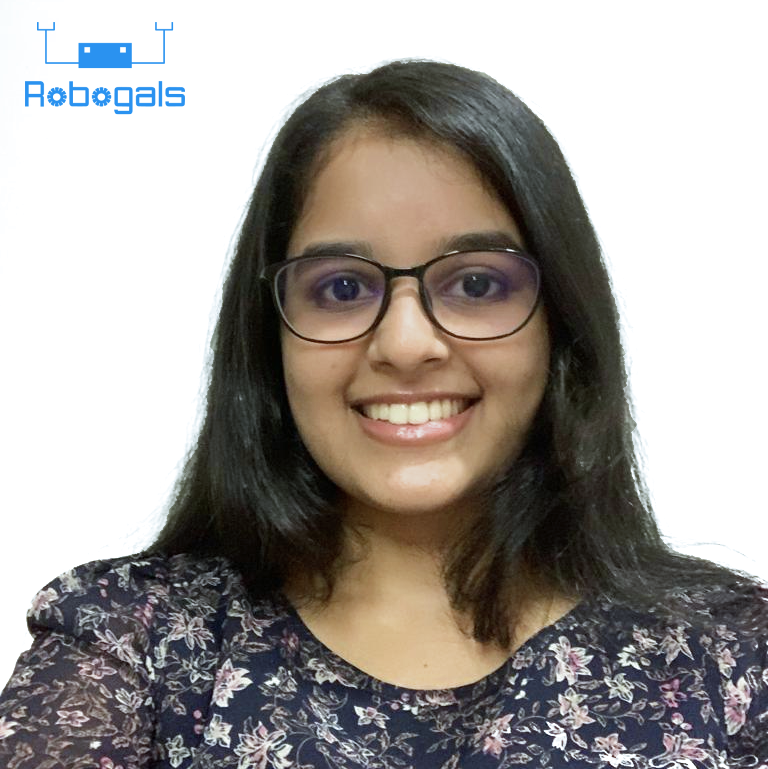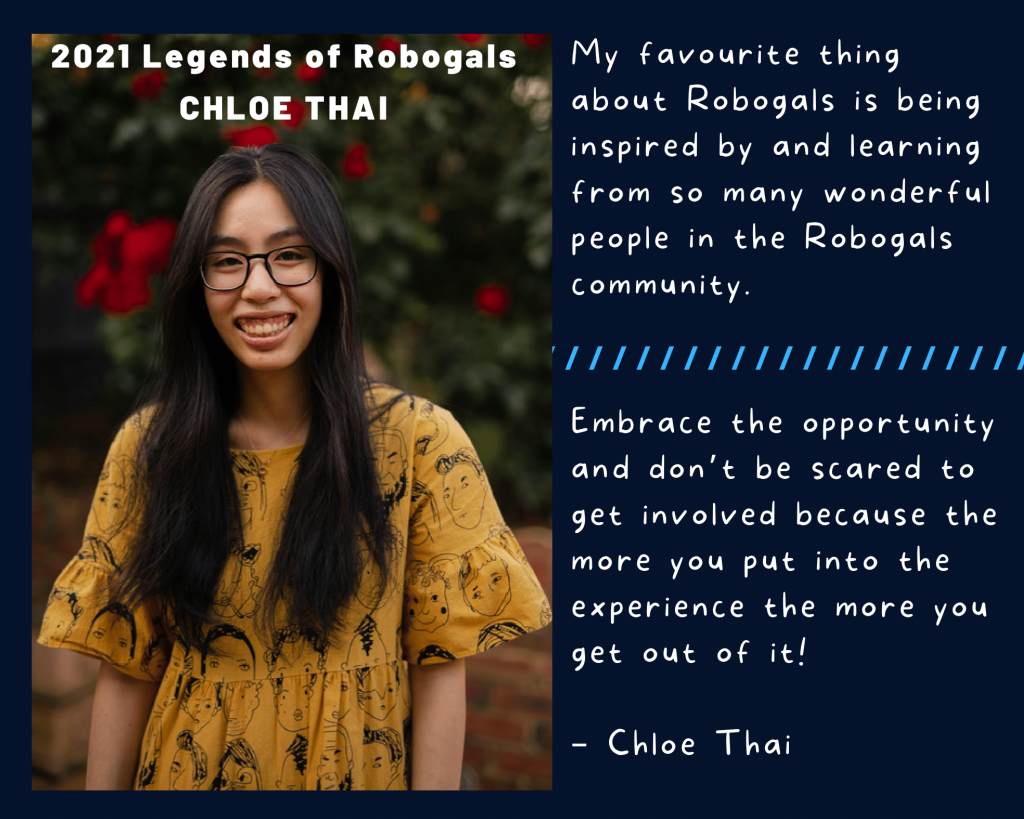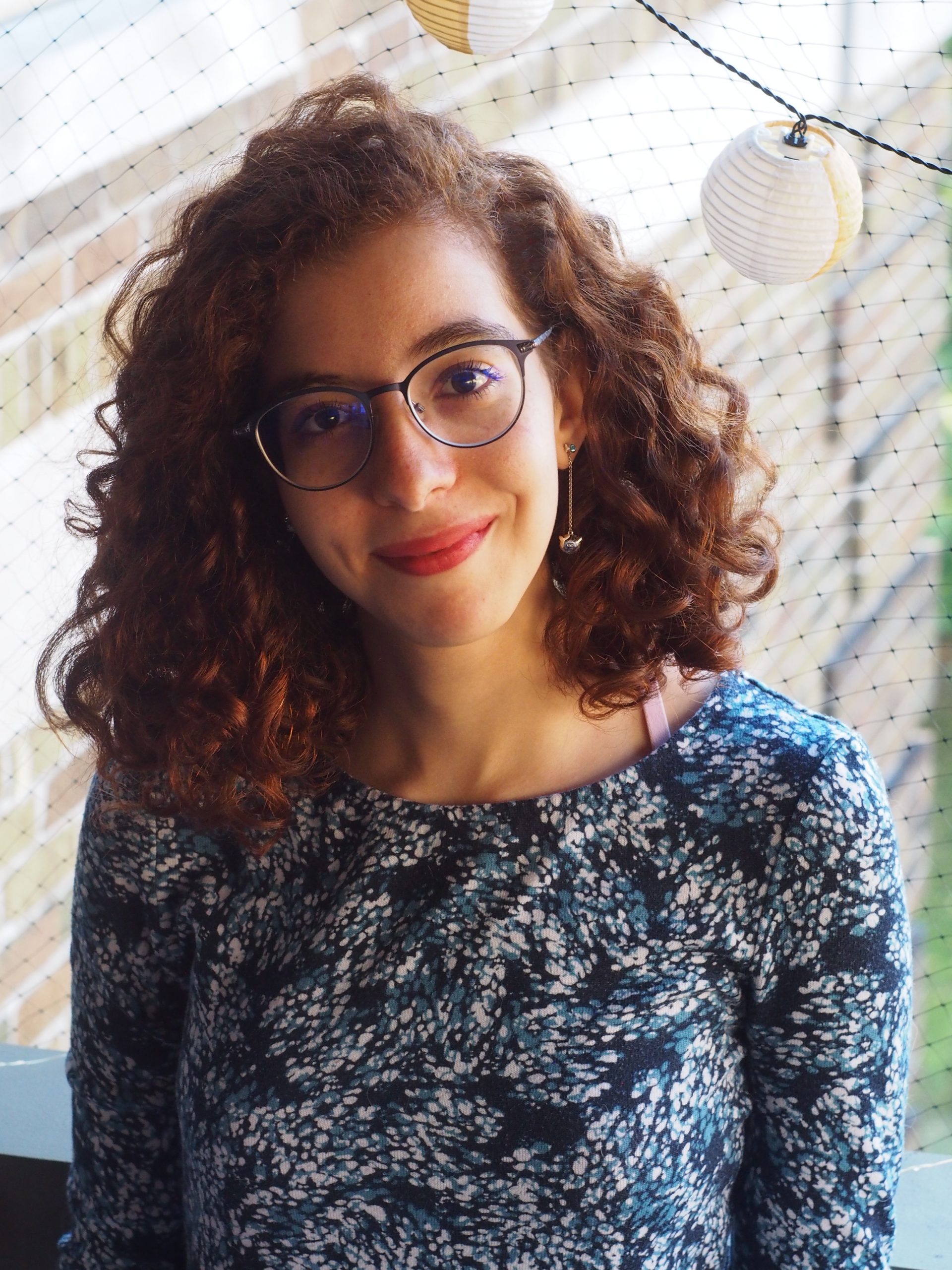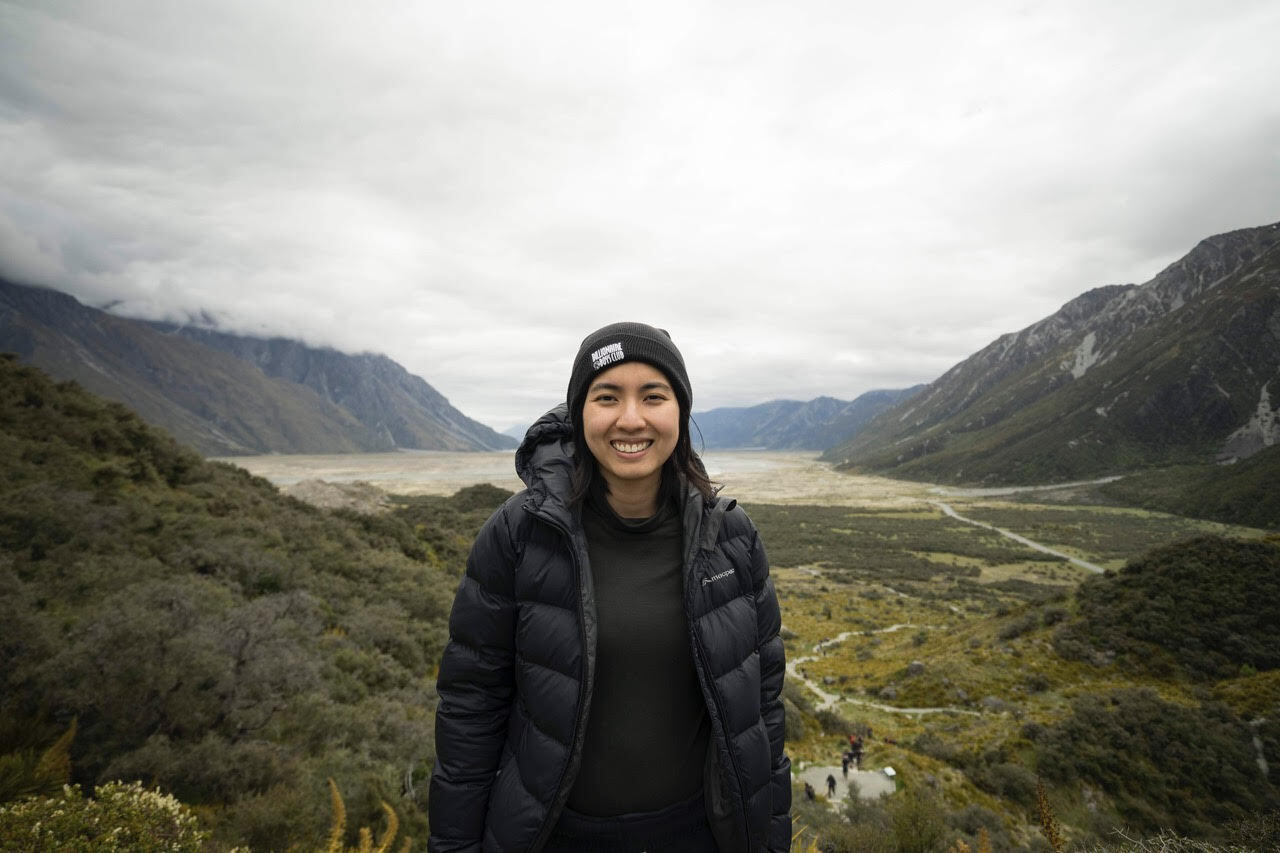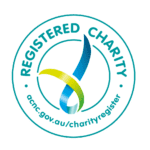By Freddie Lough Recently I sat down with our own Robogals Marketing Manager Raksha Ramprasad Venkata Suvarna to talk about her passion for artificial intelligence (AI) and being a role model for women in STEM. Robogals Global Marketing Manager (2022) Raksha Ramprasad Venkata Suvarna Experience in school As a engineering university student, she reflects on her previous experiences growing up in middle school with a noticeable disparity between girls and boys taking on technical subjects including physics and maths. “For a career in STEM, you need to start at middle school.” Although very engaged in STEM subjects, Raksha, like majority of her female peers, didn’t do physics or maths subjects but rather biology, psychology and chemistry which are typically more healthcare-oriented and generally more female dominated. The more technical mechanical subjects were dominated by males. “I did notice that most of them [female students] tend to steer towards biology, but not technical subjects.” This is where she believes the work of Robogals is incredibly effective in showing young students in their formative years, the range of possible careers they can take and normalise the image of women working in engineering. The Robogals workshops focus on robotics and coding activities which are incredibly interactive and encourage logical thinking. When choosing her degree for university, Raksha stayed true to her interests and chose mechatronics engineering with a focus on AI. Mechatronics engineering is the combination of mechanical, electrical and software engineering: robotics. Robogals workshop using EV3 LEGO Mindstorm robots The AI industry At first glance of the AI industry from her internship, Raksha observed the number of women in the workplace to be about 30%, however upon closer inspection, the women in the engineering workspace were generally working in HR or public relations, not technical roles! It seems like a repetition of what she experienced in her middle school. When there’s an “increase in age or elevation in hierarchy [in the workplace], there’s less women in technical roles.” As I discovered when speaking with Raksha, AI has an discouraging situation in relation to gender and race discrimination. While she is passionate about working in the AI area, it has a ways to go. In fact, it’s one of her motivators to make a difference for the better. AI is “proficient enough to be used for many applications, but when it comes to certain softwares, it tends to discriminate against women and people of colour.” There’s an AI software that can identify lung problems and diseases more efficiently in men than other groups of people. Additionally, AI is generally more capable of facial recognition when it comes to caucasian males. These examples highlight a clear disparity and are further expanded on in Kyle Wiggers’ ‘Researchers find evidence of racial, gender, and socioeconomic bias in chest X-ray classifiers.’ [1] Robogals’ impact reaches far and the community of strong females and inspiring mission is what made Raksha volunteer her time as schools coordinator and marketing manager. Just as she’s grown in her confidence, her work ultimately instils confidence in the young students she interacts with. — Resources: [1] Kyle Wiggers, ‘Researchers find evidence of racial, gender, and socioeconomic bias in chest X-ray classifiers’, Venture Beat, New York City, USA, 2020, https://venturebeat.com/2020/10/21/researchers-find-evidence-of-racial-gender-and-socioeconomic-bias-in-chest-x-ray-classifiers/, (accessed 23rd February, 2022)
Legend of Robogals: Chloe Thai – APAC SINE 2021
Robogals congratulates Chloe Thai for receiving the Legend of Robogals award due to the huge impact she has made over a difficult year. Many places were hit hard from lockdowns, however Chloe led the chapter to reach more than 650 students across Victoria. During her time as President, workshops were run […]
#People of Robogals: Eliza Li – A Blessing in Disguise
By Imogen Feder Robogals Global was lucky enough to speak with young social entrepreneur Eliza Li (Managing Director & Co-founder of Halad to Health) this week. In 2019, while still at university, Eliza and a group of her biomedicine peers travelled to the Philippines to run preventative health education lessons in the local schools. Seeing the communities’ need for further health education, and inspired by the success of the volunteer mission trip, Eliza developed a program to help close the gap in health inequality – and so Halad to Health was born. 1 Eliza Li with Halad to Health volunteers Like for many, 2020 didn’t exactly go as planned for Eliza and the lockdown swiftly brought to a halt Halad’s future missions. This was a turning point for the charity – would they leave their work as it was or shift gears in a new direction? Eliza and her team decided to pivot their attention to raising funds for Halad. They saw a gap in the market for affordable and student run pre-med tuition services. Despite all that has happened, Eliza describes it as a ‘blessing in disguise’. “It’s sort of hard to admit when something is tragic but actually goes in your favour – for the start-up of Halad, however, it really was.” 2 Eliza on a volunteer trip with AIESEC in the Philippines Before all this, Eliza was a biomedicine/commerce student at Monash University, passionate about making a difference in the world. She first travelled to the Philippines at the beginning of 2017 with AIESEC, volunteering her time to train and work as a scrub nurse with local doctors and nurses. The trip planted a seed of an idea in Eliza’s mind. “Thank you will never be enough for all the doctors and nurses who really invested their time into me,” she said, “I knew I wanted to pay that investment forward and help educate others.” But how does a third-year university student start a not-for-profit in a foreign country? Fast forward two years, Eliza received a phone call from a local friend, who lived in Mindanao, the southern island in the Philippines, and would later become her Halad to Health co-founder. After that call for help, she returned on a ‘discovery’ mission, visiting the local hospitals and schools with new local friends, asking questions and observing the health system as it was. 3 Halad volunteers created simplified health information for local hospitals They started small. They noticed the posters on the walls of the local hospitals were all written in scientific English which presented a clear barrier to health education as many locals were from farming communities with little knowledge of English. So they translated the information, breaking it down into three basic dot points to make it easier to understand. She then recruited Monash student volunteers who travelled to the local Filipino schools, presenting and contextualising the health information to the students. And so Halad was born with the message that “a real change can happen when you provide someone with the right health education to begin with”. She reflects “we get taught about the burden of global health at university but not how possible it is for us as students to fill that void.” 4 Halad to Health volunteers with Dr Uy, Medical Director of the Mindanao Foundation Hospital (Valencia City) Even before the pandemic started, Eliza was conscious that Halad was not sustainably funded. Often digging into her own pockets, Halad needed a more constant source of funding to allow for future missions. And so the team brainstormed. They trialled offering a masterclass for pre-med students, run by past successful candidates, preparing them for the notoriously difficult Graduate Medical School Admission Test (GAMSAT). It was an instant hit with students who were used to paying upwards of hundreds of dollars for resources. Soon, a six-week course was created, one that quickly moved online and became popular with not just Monash students, but students from all around Australia and the UK. As their GAMSAT services continued to grow, Eliza and her team set a new precedent for affordable, socially conscious and student run tuition. The tuition fees go towards Halad’s mission and Eliza believes that being a socially conscious option for students is one of the reasons their tuition services have proved so instantly popular, reaching over 1600+ students (across paid and free GAMSAT services) and raising 6-figures in this first year since launching. 5 A GAMSAT workshop run by Halad to Health at Monash University earlier this year (image taken prior to Covid-19 social distancing requirements) There is a common misconception about company founders that the success story we all see was the first idea. Halad to Health, both in their missions and the GAMSAT services, seems like it’s been years in the making, and Eliza admits that it has. “The successful company is never the first idea! Ever since leaving high school I have created start-ups and, let’s be honest, they’ve all failed.” Failure, however, is what led to Halad and its success. “It stands on the shoulders of all the failures that came before it,” she said. For those looking to start their own business, Eliza recommends having the mentality of just listening. “You’re not there to impose a solution, you’re really just trying to hear what the problem is.” Eliza also adds that doing what you truly love and are passionate about sometimes requires patience. “I had to be honest with myself and realise that I had to determine my own way of doing things. I had to have faith in myself that I would see when the time was right, but I also don’t think I would have the skills to pull it off if I hadn’t taken the time to learn and grow my networks. You’re expected to have it all figured out when you reach the end of your degree but, to be honest, I really did not.” Resources: https://www.haladtohealth.org/ https://medium.com/halad-to-health/halad-turns-1-fe2675894943 If you know of someone who may want to share their experiences and love of science
#PeopleOfRobogals: Amina Berrada
By Imogen Feder For our latest People of Robogals blog, we had the pleasure of talking to engineer Amina to discuss her decision to move overseas to study, her passion for mentoring female science students and her fascination with studying light – and electric fish. Amina Berrada You can tell Amina is passionate about electric fish from the way she starts to talk fast, and her eyes light up. “They really are the most fascinating creatures,” she says, smiling, “so please just stop me if I am talking about them for hours”. These tiny fish use electric signals to navigate and talk to one another, and Amina’s thesis attempts to unravel how their brains interact with their electric organs. She started researching Weakly electric fish, including the Black Ghost Knifefish, while a physics and engineering student at the University of Ottawa and is expecting to publish her research shortly. With so much obvious passion for physics and engineering, it is surprising to learn that Amina didn’t always believe a career in science was a possibility. As a girl growing up in Morocco, she didn’t know many female family or friends working in STEM-related fields, and was not pushed to explore her passion for science at school. “I can only speak to my experience but often women’s careers are not prioritised, and girls aren’t always encouraged to pursue their education in technical fields. Having more women representation in STEM could really make a difference.” Luckily, Amina’s parents encouraged her to visit libraries and discover science, and to pursue her interest in stars and planets in her own way. In her final year of high school, she was inspired by her Physics Professor to pursue further study in science. When it came to choosing a university, her strategy was a little unusual. “Naive me in high school”, she said, laughing, “I looked at the Nobel Prize Laureates Nominees in Physics and I saw the University of Ottawa had a Professor that was nominated.” Moving halfway across the world, Amina found herself studying in classes with only four females out of 150 students. “It can be really intimidating. Sometimes it is hard to be taken seriously just because you don’t match what everyone else looks and feels like.” These experiences inspired Amina to mentor other science students while at university. She found student to student interaction to be helpful, especially for first year students struggling with time management and learning strategies. She soon found that being visible as a woman in STEM was inspiring to many students, giving them hope they could “power through the degree and get it done!” Amina was one of the first students to graduate with a double degree in Physics and Engineering from the University of Ottawa and specialised in photonics, the application of light. She now works as an engineer at Lumentum and is involved in projects that aim at improving the manufacturing process and quality of optical communication products. “I am so fortunate that I had the opportunity to study, and now work, in a field that I love and I realise that a lot of people don’t have that option.” Amina started working with Robogals in May after she organised the Canadian Conference for Undergraduate Women in Physics at the University of Ottawa in 2019. At the Conference, she found it empowering to see so many women speaking about graduate opportunities, and Nobel Prize winning physicist Donna Strickland spoke at the event. She is now busy ensuring that future Robogals North American SINE Conferences will be full of inspiring female STEM speakers and workshops. Amina continues to inspire people to make a difference. “I want to give all girls the idea that if a career interests you, then don’t be afraid to pursue it! It might look intimidating and scary, and maybe you don’t know any women who have done it, but it is possible. I had the craziest dreams as a kid. It’s telling kids that it is possible to have a career in science that really makes a difference!” If you know of someone who may want to share their experiences and love of science – please contact us at [email protected]
#PeopleOfRobogals: Alexa Nguyen – Cracking the Code
By Imogen Feder In late 2019, Robogals sat down with Alexa Nguyen, a Software Developer at SEEK, to discuss the importance of encouraging girls to try coding and programming at a young age. Pathway to Coding Alexa first started a Science degree in 2013 at the University of Adelaide. Like a lot of undergraduates, she simply just didn’t know what she wanted to do. “Perhaps”, she said, “if I had been exposed to Robogals earlier, I might have chosen to pursue software engineering or computer science straight out of high school.” After finishing her science degree, she chose to start a Maths and Computer Science degree. At this point, she was just aiming to get good enough grades to transfer into dentistry, as her parents wanted. However, to her surprise, her enjoyment in taking an introductory programming course prompted her to change into an advanced stream of a computer science degree. Alexa’s Journey with Robogals Alexa first started going to Robogals social events for the free pizza and to meet people. “It just sounded a bit scary and intimidating!”, she told us, laughing. Her love for teaching kids how to code and program robots was discovered when she helped run a Robogals workshop in Mount Gambier. “When I was in school, I was never encouraged to try coding! If I were in their position, I’d be really happy to be shown how to code and program these robots and do these cool things!” The five-day rural trip took place in 2017, and Robogals Adelaide visited five different schools. “I really cherished the opportunity to help out some kids who had never been exposed to STEM!” Despite it being her first workshop, Alexa found it all really easy to pick up, thanks to the help of a few experienced volunteers. While on the trip, Alexa and the other volunteers had the perfect opportunity for light painting against the backdrop of stars. The lack of light pollution had stunning results, with the volunteers only needing the light from their phones to illuminate their surroundings. In 2019, Alexa became the treasurer for the University of Adelaide Chapter and helped bring 39 workshops to 1058 students throughout the year. Into the Future According to Alexa, a choice to study STEM at university isn’t enough. “We need to help foster a sense of belonging for women in tech so that they remain engaged in the community!” she said. “That’s why I loved being involved with Robogals and attending the annual SINE conference where I could connect with like-minded people who share a common goal.” Now having completed her studies, she hopes there will be further opportunities for her to attend Robogals workshops in the future. If you want to share your experiences with Robogals or passion for STEM with us – please contact us at [email protected]
